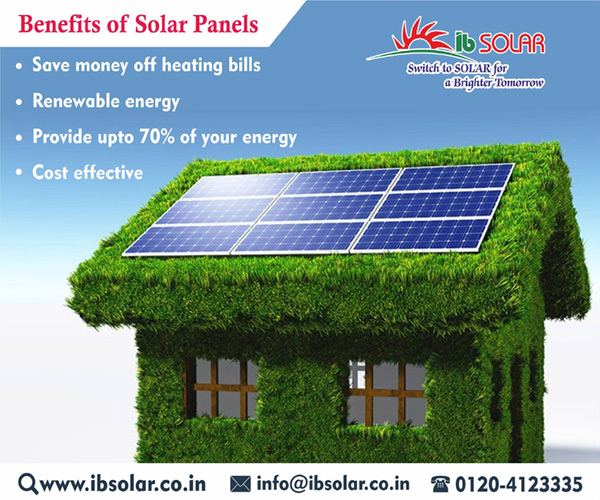Exactly How Solar Power Can Aid You Conserve Cash and Lower Your Carbon Impact
The integration of solar energy right into your power profile provides an engaging chance for both monetary cost savings and ecological stewardship. By taking advantage of the sunlight's power, home owners can significantly decrease their month-to-month utility costs while additionally protecting versus the unpredictability of future energy costs. Moreover, the transition to solar adds to a marked reduction in carbon emissions, aligning personal financing with wider eco-friendly objectives. As different federal government motivations end up being available, the inquiry develops: how can one effectively browse the preliminary investments and recurring benefits of solar technology to optimize both economic and ecological gains?
Comprehending Solar Energy Cost Savings
While the change to solar energy often involves a preliminary investment, comprehending solar power financial savings is critical for homeowners and companies alike. Solar power systems can significantly reduce power costs by harnessing the sunlight's power, equating into substantial long-lasting monetary benefits.
Additionally, solar power systems may qualify for various financial incentives, including tax credits and rebates, further improving their cost-effectiveness. The accessibility of net metering enables individuals to sell excess power back to the grid, producing an additional earnings stream. These variables add to the overall savings related to solar power.

Along with guide financial savings, solar power uses the added benefit of raising residential property worth. Homes furnished with photovoltaic panels are commonly much more attractive to buyers, as they guarantee reduced energy prices - Simply Solar Illinois. Comprehending these elements is crucial for any individual taking into consideration solar power, as it highlights not just the possible financial gains, but additionally the broader ecological and financial benefits of taking on eco-friendly energy services
Initial Prices vs. Long-Term Conveniences
When examining solar power, it is essential to weigh the first prices against the long-term advantages. The ahead of time financial investment for solar panels, installation, and relevant devices can be considerable, commonly ranging from $15,000 to $30,000, depending on the system dimension and home power needs. This first expense may discourage some homeowners; nevertheless, it is important to consider the possible savings with time.
When installed, solar energy systems can considerably reduce and even get rid of monthly electricity bills, bring about considerable long-term economic benefits. Researches suggest that property owners can conserve anywhere from $10,000 to $30,000 over the life expectancy of their solar system, usually 25 years. In addition, numerous states use motivations, tax credit ratings, and refunds that can balance out preliminary expenses, making solar extra available.

Minimizing Your Carbon Footprint
Decreasing your carbon footprint is a vital factor to consider in today's ecologically conscious culture, and taking on solar power is just one of the most efficient strategies to accomplish this objective. Solar energy is a tidy, renewable resource that dramatically decreases dependence on nonrenewable fuel sources, which are major factors to greenhouse gas exhausts.

Furthermore, the prevalent adoption of solar technology encourages the development of green work and supports innovations in power storage and effectiveness. The even more individuals and companies invest in solar energy, the greater the collective decrease in carbon emissions, cultivating a cleaner atmosphere for future generations.
Federal Government Incentives and Discounts
Adopting solar energy not only profits the environment yet can likewise bring about considerable financial cost savings, specifically with the schedule of federal government motivations and refunds. Different federal, state, and local programs are designed to urge property owners and services to spend in solar power systems, making the look at this site change much more budget-friendly.
Among one of the most noticeable incentives is the Federal Investment Tax Obligation Credit History (ITC), which permits planetary system proprietors to deduct a substantial portion of the setup expenses from their government tax obligations. This motivation has actually been crucial in reducing the upfront expenses connected with solar power systems. Furthermore, several states offer their websites own tax credit histories, gives, and refunds that can even more improve cost savings.
Additionally, some regional governments supply real estate tax exceptions for solar installments, making certain that homeowners do not face enhanced home taxes as a result of their renewable resource financial investments. Energy firms may likewise supply motivations, consisting of web metering and feed-in tariffs, which enable solar energy individuals to market excess power back to the grid.
Choosing the Right Solar System
Selecting the appropriate solar system is vital for optimizing power performance and economic advantages. The choice hinges on a number of elements, consisting of power needs, spending plan, and offered space. Home owners ought to start by examining their electricity intake to identify the system dimension required for optimum performance.
Following, think about the various kinds of solar technologies readily available. Simply Solar Illinois. Solar (PV) panels are one of the most usual, converting sunshine directly right into power, while solar thermal systems focus on heating water. Each kind has distinct benefits depending upon link specific needs
Budget factors to consider are additionally vital. First setup expenses can differ considerably, so it is essential to compare quotes from several service providers and discover funding options. Government motivations and rebates can even more minimize the financial concern, making planetary systems extra available.
Final Thought
The environmental advantages of solar energy add to sustainable techniques crucial for combating environment change. Government motivations enhance the expediency of solar innovation fostering, urging a change towards a cleaner, much more economically reliable energy resource.